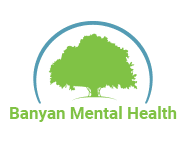


Burnout in Mental Health Professionals
September 6, 2022

Best Books on Overthinking
September 29, 2022Addicted to News: How to Prevent Overload


With COVID-19, including the Omicron, Delta, Alpha, and Beta variants, and then add monkeypox and all the other unfortunate things that happen in our everyday lives, the country seems to be overwhelmed with bad news. Bad news seems to compound our negative emotions and add to our stress either by reminding us of the things we want to forget or informing us of things we’d rather not know. Mental health can be decimated by the news cycle, but no matter how hard it is on the mind, some people can’t seem to stay away from it. Today our center for mental health care in Boca Raton is sharing more on the consequences of being addicted to news and how to prevent overload.
What Is News Addiction?
Otherwise referred to as “headline stress disorder” in a Northwestern University Medical School article, news addiction refers to the inability to stop watching the news or receive new information about current events. Individuals who are “addicted to the news” may always have their local news channel on, scroll their social media and online news platforms, and feel a constant urge or obsession with receiving new knowledge.
This condition is also known as headline anxiety and stress disorder, and when breaking news is constantly flooding media channels, it can make anyone feel overwhelmed, stressed, and anxious. Somber stories, shocking headlines, and continual notifications are taking a heavy toll on society’s mental health.
Many people are made anxious by the widespread distribution of negative or frightening news. What’s more, individuals with anxiety disorders, depression, or other mental health problems are more likely to experience psychological distress due to negative news. So how exactly does a news addiction impact a person’s life?
Effects of Addiction to News on Mental Health
There’s no arguing the value of news. Reporters and journalists work tirelessly to ensure that our communities remain informed. However, too much of something isn’t a good thing, and having access to too much information can be detrimental to certain aspects of one’s mental health and well-being.
As 24-hour news outlets compete for ratings, they often cover events in extreme detail and often sensationalize aspects of a story to make it more appealing. More than 70% of the United States believe that the media “blows things out of proportion,” which could lead to increased stress and anxiety in those who consume the news frequently.
What’s more, over half of Americans say the news causes them stress. While the news isn’t always problematic in small doses, chronic stress is linked to numerous health issues. In a world where news is available across multiple platforms, such as our smartphones, TVs, and car radios, it can be difficult to escape both the news and the stress that comes with it.
While there are certainly feel-good stories out there, most headlines are anything but positive. Startling and unnerving audiences get views and clicks, which is why news outlets tend to exaggerate stories and post the most heartbreaking ones.
The news today is also greatly influenced by user-generated content (UGC), which includes images and videos that may depict graphic violence and other disturbing content, which would have been further censored in the past or withheld from the public altogether.
Today, this type of content is highly sought-after by both the media and audiences, making it easy to see, even for those who weren’t interested in the first place. For these reasons, frequent exposure to news – or being addicted to news – can lead to stress, which may contribute to anxiety and even depression.
As we mentioned, many Americans find the news to be highly stressful, and chronic stress is a major risk factor for depression. Unlike the newspaper-reading days before 24-hour news outlets were high-ranking, today’s non-stop exposure to this source of stress can cause mental illness.
If you’re struggling with your mental health, our residential mental health program in Boca offers care for all kinds of disorders. Our specialists can help you gain control over your mental health and make positive changes to your life.
How to Deal With the News
Are there any ways we can cope with the impact of constant, negative news? If you’ve been struggling to keep off news outlets, here are some tips on how to stop news addiction and strategies for reading bad news that can allow you to remain informed while controlling the urge.
- Look for sources: When watching or reading the news, look at its source. Remember that headlines are designed to draw you in, so it’s common for news outlets to “bend” the truth for ratings and clicks. These headlines can also be referred to as clickbait.
- Realize that experts can be wrong: In the 1800s, the Commissioner of the US patent office stated, “everything that can be invented has been invented.” Fast forward to the 1960s, when Stanford biologist Paul R. Ehrlich declared that – based on the science of the time – 65 million people would succumb to starvation by the 1970s in his book The Population Bomb. Even though many people around the world did have food insecurity, the rate at which people died from starvation went from 12.5 per 1,000 in 1968 to only 7.6 - a much lower rate of starvation. As you can see, sometimes the smartest people get things wrong.
- Read the news instead of watching it: Consider going back to the old-fashioned way of getting your news fix – newspapers. These could help contribute a sense of calm and control while informing yourself about current events. Newspapers lack flashing lights, loud noises, pop-up ads, and comment sections that often contribute to stress when watching a news channel.
- Set a time limit: It’s easy to scroll aimlessly for hours on our feeds, unsure of what we’re looking for but convinced we’ll find it with the next refresh. Sometimes this can feel like you’re “zoning out.” Setting a timer, alarm, or even digital app limit on your phone can prevent you from spending too much time online.
- Unplug entirely: If you’re feeling overwhelmed or burnt out, unplug entirely. Take a break from social media and the news and allow yourself to regroup.
By following these tips, it may be possible for you to reap the rewards of the news – like increased information and psychological resilience – while avoiding the negative effects. But if these tips aren’t efficient, our Banyan mental health center offers services that can help.
Our mental health care in Boca Raton includes treatment for depression, anxiety, OCD, and more. We can help you regain control over your mental health and learn how to cope with everyday stressors like the news.
Call Banyan Treatment Centers today at 888-280-4763 to get started!
Sources:
- American Psychological Association - APA Stress in America™ Survey: the US at ‘Lowest Point We Can Remember;’ Future of Nation Most Commonly Reported Source of Stress
- ScienceDirect - Life stress as a potential risk factor for depression and burnout
- Patentlyo - Tracing the Quote: Everything that can be Invented has been Invented
- The New York Times - The Unrealized Horrors of Population Explosion
Related Reading:
How to Reduce Stress & Improve Your Life
Secondary Trauma: Signs, Symptoms, & Treatment







